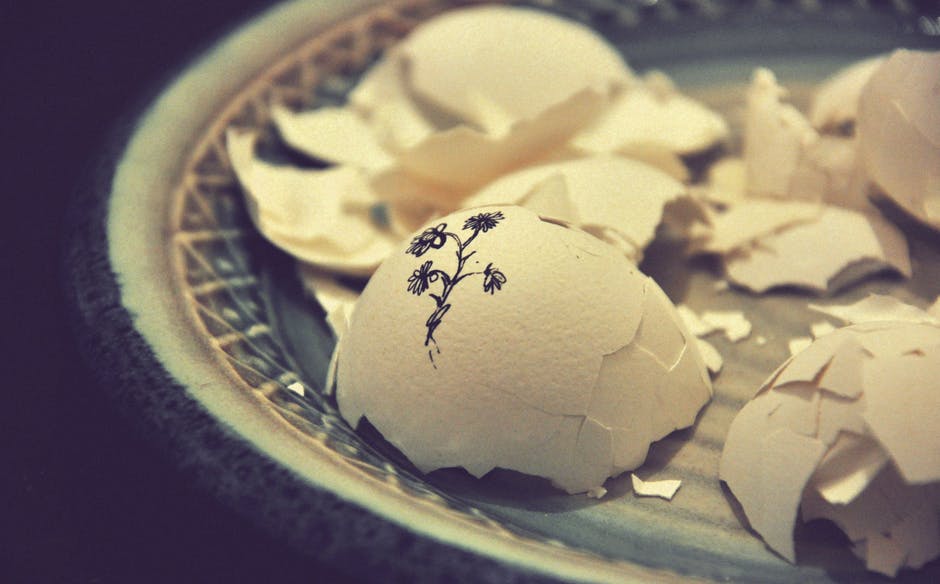Yesterday I discussed Sun Tzu's near obsession with the avoidance of anger in The Art of War such that it seems to indicate his own past problems with anger. This is similar to why veterans who have seen the horrors of war firsthand are usually the biggest doves. In every sense, I believe this is the admirable human drive for redemption.
Avoiding something isn't only a matter of being sick of something or having had too much of something, but is also coming to our senses and finally seeing a path that is closer to where we want to be. We can see the bigger picture of the world and it's clearer, too. This is the very process of learning and maturing.
To Sun Tzu, this accumulation of learning and maturing translates to practicality and effectiveness. It gives us strength, which in turn gives us the power to make things happen for ourselves and for the people around us. When someone has strength, he or she can't help but exude it. For example, Sun Tzu advised the military leader:
Avoiding something isn't only a matter of being sick of something or having had too much of something, but is also coming to our senses and finally seeing a path that is closer to where we want to be. We can see the bigger picture of the world and it's clearer, too. This is the very process of learning and maturing.
To Sun Tzu, this accumulation of learning and maturing translates to practicality and effectiveness. It gives us strength, which in turn gives us the power to make things happen for ourselves and for the people around us. When someone has strength, he or she can't help but exude it. For example, Sun Tzu advised the military leader:
"Do not do battle with well ordered flags; do not do battle with well-regulated formations." Sun Tzu
Here, Sun Tzu is referring to the opposition's army strength indicated by its impressive well-ordered flags and well-regulated formations. A trained and disciplined army is a formidable army.
But sometimes, strength is much more subtle. It can even be the opposite of what people expect. An enemy's display of anger and aggression, for instance, seems to project strength but we know it's quite the contrary, as explained by Sun Tzu in Chapter Nine (Army Maneuvers):
But sometimes, strength is much more subtle. It can even be the opposite of what people expect. An enemy's display of anger and aggression, for instance, seems to project strength but we know it's quite the contrary, as explained by Sun Tzu in Chapter Nine (Army Maneuvers):
"If he speaks belligerently and advances aggressively, he will retreat." Sun Tzu
Conversely, if the opposition is calm, it doesn't mean he or she is weak but in actuality might be in a position of great strength (also found in Chapter Nine):
"If the enemy is close and remains quiet, he occupies a natural stronghold." Sun Tzu
And right between the two verses described above from Chapter Nine, Sun Tzu speaks about humbleness:
"If he speaks humbly, but increases warfare readiness, he will advance." Sun Tzu
Humbleness, like calmness, indicates someone being in control and not in a state of extreme emotion. Humbleness prevents someone from making rash decisions. He or she is cautious and prudent.
Being cautious and prudent is a mindset prized by Sun Tzu because the chances of making a costly mistake in war are greatly reduced. Since this mindset is from the objective of defense, one can achieve invincibility:
Being cautious and prudent is a mindset prized by Sun Tzu because the chances of making a costly mistake in war are greatly reduced. Since this mindset is from the objective of defense, one can achieve invincibility:
"Those skilled in warfare can make themselves invincible, but cannot necessarily cause the enemy to be vulnerable. Therefore it is said one may know how to win but cannot necessarily do it." Sun Tzu
Lao Tzu's Tao Te Ching states that skilled warriors are so averse to making mistakes that "their wariness was as that of one crossing a river in winter; their caution was as that of one in fear of all around." This approach preserves our strength, especially in war and conflicts where one bad move can jeopardize people's lives and livelihoods.
Because Sun Tzu believes humbleness is a trait of strength, he even feels the need to convert the opposition's emotional state from being humble to being arrogant in order to shift the balance of power:
Because Sun Tzu believes humbleness is a trait of strength, he even feels the need to convert the opposition's emotional state from being humble to being arrogant in order to shift the balance of power:
"If they are humble, make them haughty; if they are relaxed, toil them; if they are united, separate them." Sun Tzu
It is apparent here that Sun Tzu is trying to move the enemy from a position of strength to a position of weakness: from humbleness to arrogance, from relaxation to exhaustion, from unity to separation.
Further corroboration of the value of humbleness can be found in the following story from The Masters of Huainan (literally The Writings of the Masters South of the Huai, otherwise known as Huainanzi):
Further corroboration of the value of humbleness can be found in the following story from The Masters of Huainan (literally The Writings of the Masters South of the Huai, otherwise known as Huainanzi):
When the state of Jin marched on the state of Chu, the grandees of Chu asked the king to attack, but the king said, “Jin did not attack us during the reign of our former king; now that Jin is attacking us during my reign, it must be my fault. What can be done for this disgrace?”
The grandees said, “Jin did not attack us in the time of previous ministries; now that Jin is attacking us during our administration, it must be our fault.”
The king of Chu bowed his head and wept. Then he rose and bowed to his ministers.
When the people of Jin heard about this, they said, “The king of Chu and his ministers are competing to take the blame on themselves; and how easily the king humbles himself to his subordinates. They cannot be attacked.”
So that night the Jin army turned around to go home.
This is why the Tao Te Ching says, “Who can accept the disgrace of a nation is called ruler of the land.”
The Jin army invaders above didn't retreat only because of an ideal or morality. They retreated also for pragmatic purposes because they suddenly became aware of the strong leadership present in the state of Chu, as evidenced by all the leaders' exemplary humbleness. It was obvious to them that Chu's leaders must be of sound mind; they can see reality clearly. Ultimately, it means Chu is capable of creating sound strategies appropriate to successfully defend Jin's attack. Thus, Jin made the right decision to go back home.
If Jin didn't have the wisdom to determine Chu's true strength and instead attack and somehow manage to occupy Chu, it would still be at a tremendous cost. The Masters of Huainan states:
If Jin didn't have the wisdom to determine Chu's true strength and instead attack and somehow manage to occupy Chu, it would still be at a tremendous cost. The Masters of Huainan states:
The Martial Lord of Wei asked one of his ministers what had caused the destruction of a certain nation-state. The minister said, “Repeated victories in repeated wars.”
The Martial Lord said, “A nation is fortunate to win repeated victories in repeated wars. Why would that cause its destruction?”
The minister said, “Where there are repeated wars, the people are weakened; when they score repeated victories, rulers become haughty. Let haughty rulers command weakened people, and rare is the nation that will not perish as a result.”
This is exactly why Sun Tzu said the highest excellence isn't winning 100 battles but to win without fighting at all. The goal isn't to simply win battles because battles are costly. In business terms, battles produce a poor return for our investment. The Tao Te Ching puts it more dramatically: "When you win a war, you celebrate by mourning."
Sun Tzu's aim is to prevail with All-Under-Heaven intact, especially since losses of our enemy don't always translate to gains on our side. This is true victory. Sun Tzu's aim, as confirmed by The Masters of Huainan story above, prevents not only the unnecessary destruction of our enemy but also the weakening and erosion of ourselves.
One way we can gain consistently is to learn from our past mistakes because we would prevent future losses. To act like this, like how the king and ministers of Chu acted, we must remove our enlarged ego that has been obstructing our view of the world that is much bigger and clearer than we think it is. Without seeing the possibility of our fallibility, we won't have the foresight to actively solve problems when they are still small and manageable.
In essence, being humble is a redeeming quality that makes us want to change our behavior for the better. And if we can improve on our behavior, we can become stronger and become capable in both defense and attack. We would have no enemies under Heaven, balance would be restored, and everyone can go home in peace. This is the world in its natural calm and humble state.
Sun Tzu's aim is to prevail with All-Under-Heaven intact, especially since losses of our enemy don't always translate to gains on our side. This is true victory. Sun Tzu's aim, as confirmed by The Masters of Huainan story above, prevents not only the unnecessary destruction of our enemy but also the weakening and erosion of ourselves.
One way we can gain consistently is to learn from our past mistakes because we would prevent future losses. To act like this, like how the king and ministers of Chu acted, we must remove our enlarged ego that has been obstructing our view of the world that is much bigger and clearer than we think it is. Without seeing the possibility of our fallibility, we won't have the foresight to actively solve problems when they are still small and manageable.
In essence, being humble is a redeeming quality that makes us want to change our behavior for the better. And if we can improve on our behavior, we can become stronger and become capable in both defense and attack. We would have no enemies under Heaven, balance would be restored, and everyone can go home in peace. This is the world in its natural calm and humble state.


 RSS Feed
RSS Feed